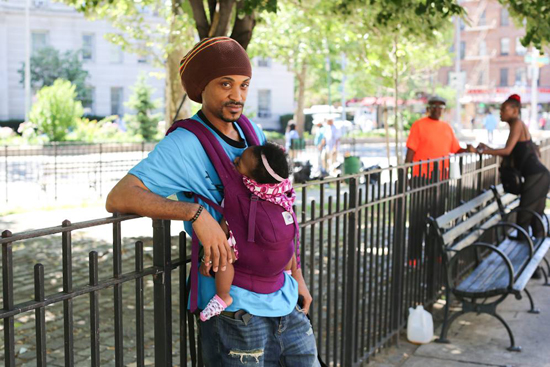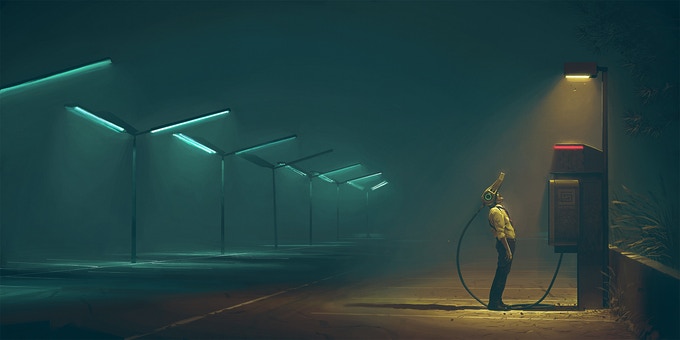I just L-O-V-E LOVE this video. The faces, the tangible awkwardness that slowly turns to comfort, intrigue, and a willingness to open up. The sliding of the foot under the table.
There's no place to hide; no tricks to perform. It's just them, talking, and staring into each others eyes.
I love question 31, "Tell your partner something that you like about them already" because we can, that quickly, truly begin to like something about an individual and we can, that quickly, choose to focus on it, grow on it, and love it. And I love that they have to say it, not just think it.
While watching this one, I began to wonder what would happen if I did this with family? With the ones that won't talk to me, and the ones I don't want to talk to? Especially after considering question 35.
Could we choose to love again? After 36 questions, could we find something that we liked about them, something new or something renewed? Or would we choose to cling to what we hate?
But also, and a little further, what if we (everyone) did this with anyone we come into contact with that scares or intimidates us? What if we asked questions instead held judgements? I've only ever really done it once in my life, while visiting Hawaii, and the experience was one of the most profound ever.
But then I stopped. Because sitting and asking questions beyond the norm takes time, effort, and vulnerability, which, for me (and probably for many of us), is completely exhausting. For others, its just terrifying.
But what if we did it anyway? Even if only once and a while, to remind us that with only 36 questions, we can get to know, like, and perhaps even love complete strangers?
What would happen to our world, our countries, and our communities then? What would happen to my family?
Truly, I believe the answer is that we would heal. But who has the time to sit and talk that long?
The 36 questions are as follows:
Set One:
1. Given the choice of anyone in the world, whom would you want as a dinner guest?
2. Would you like to be famous? In what way?
3. Before making a telephone call, do you ever rehearse what you are going to say? Why?
4. What would constitute a “perfect” day for you?
5. When did you last sing to yourself? To someone else?
6. If you were able to live to the age of 90 and retain either the mind or body of a 30-year-old for the last 60 years of your life, which would you want?
7. Do you have a secret hunch about how you will die?
8. Name three things you and your partner appear to have in common.
9. For what in your life do you feel most grateful?
10. If you could change anything about the way you were raised, what would it be?
11. Take four minutes and tell your partner your life story in as much detail as possible.
12. If you could wake up tomorrow having gained any one quality or ability, what would it be?
Set Two:
13. If a crystal ball could tell you the truth about yourself, your life, the future or anything else, what would you want to know?
14. Is there something that you’ve dreamed of doing for a long time? Why haven’t you done it?
15. What is the greatest accomplishment of your life?
16. What do you value most in a friendship?
17. What is your most treasured memory?
18. What is your most terrible memory?
19. If you knew that in one year you would die suddenly, would you change anything about the way you are now living? Why?
20. What does friendship mean to you?
21. What roles do love and affection play in your life?
22. Alternate sharing something you consider a positive characteristic of your partner. Share a total of five items.
23. How close and warm is your family? Do you feel your childhood was happier than most other people’s?
24. How do you feel about your relationship with your mother?
Set Three:
25. Make three true “we” statements each. For instance, “We are both in this room feeling …”
26. Complete this sentence: “I wish I had someone with whom I could share …”
27. If you were going to become a close friend with your partner, please share what would be important for him or her to know.
28. Tell your partner what you like about them; be very honest this time, saying things that you might not say to someone you’ve just met.
29. Share with your partner an embarrassing moment in your life.
30. When did you last cry in front of another person? By yourself?
31. Tell your partner something that you like about them already.
32. What, if anything, is too serious to be joked about?
33. If you were to die this evening with no opportunity to communicate with anyone, what would you most regret not having told someone? Why haven’t you told them yet?
34. Your house, containing everything you own, catches fire. After saving your loved ones and pets, you have time to safely make a final dash to save any one item. What would it be? Why?
35. Of all the people in your family, whose death would you find most disturbing? Why?
36. Share a personal problem and ask your partner’s advice on how he or she might handle it. Also, ask your partner to reflect back to you how you seem to be feeling about the problem you have chosen.
The 36 questions that can make you “fall in love with anyone” were first published in 1997, in an academic paper by psychologist Arthur Aron and others, under the title The Experimental Generation of Interpersonal Closeness: A Procedure and Some Preliminary Findings. The questions appeared in the appendix, along with the instructions that the team had given each pair, which began “This is a study of interpersonal closeness, and your task, which we think will be quite enjoyable, is simply to get close to your partner.” Participants were told to work their way through the questions in order, each answering all 36 questions, over a period of about an hour. Six months later, two of the participants were married to each other (via).
For more on . . .
-N- Stuff : On Living : More Seafret Videos : Music
BE SURE TO SCROLL DOWN AND SUBSCRIBE - THANKS FOR READING!








































